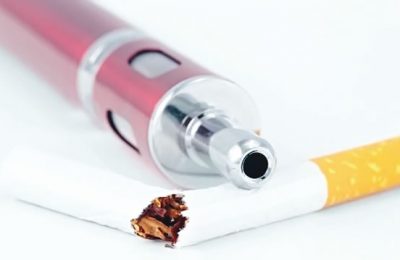
A new baby’s arrival is usually a momentous occasion to celebrate. In Nigeria, a baby’s first traditional bath is considered sacred and significant. Most cultures around the world have unique customs to welcome the infant into the family and community.
Traditionally, a baby’s grandma gives them their first bath. This typically entails vigorous scrubbing with a natural hard sponge and palm oil. Some people also bathe infants using herbal mixtures. Some hold babies upside down, massage their heads, toss them in the air, and bend their arms backwards. Some babies’ umbilical cords are squeezed using decoctions and a hot lamp.

Although there are many risks associated with these infant rituals, scientists are now finding that giving babies a massage every day and then giving them a warm bath can save the lives of many newborns.
Studies have shown that properly administered oil massage can lower newborn mortality by up to 50 percent, prevent bacterial infections, and raise children’s weight.
In a 2008 study of 497 preterm infants receiving daily massages in a Bangladeshi hospital, Stanford University School of Medicine, Professor Gary Darmstadt and his colleagues demonstrated that this age-old practice could save infants’ lives. The likelihood of infection was reduced by 40 percent, and the risk of death was reduced by 25 to 50 percent.
Through independent research, the medical team discovered that regular massage contributes to the development of the baby’s microbiome, the layer of bacteria present in the gut and on the skin. The microbiome functions as an efficient barrier that can fend off infection, enhancing immunity.
For instance, the study found that infants with malnutrition who had oil massages had a more varied microbiota. The skin’s ability to operate as an infection barrier was enhanced by the oils, making it more difficult for bacteria to pierce the skin, enter the bloodstream, and cause illnesses that might be fatal.
Premature babies lose water through their skin since their skin barrier isn’t functioning properly. The body temperature decreases as a result of the rapid evaporation of water. Additionally, a child’s life may be in danger if their body temperature falls too low. Additionally, hypothermia causes the infant to lose a lot of energy that could have been used for growth and other body processes.
Similar advantages have been discovered by other studies. According to one study, massage helps toddlers gain weight by stimulating the vagus nerve, a lengthy nerve that runs from the brain to the abdomen. This improves digestion and nutritional absorption.
A 60-year-old retired teacher named Mrs. Hannah Nwanchukwu recalled giving her granddaughter a massage. “Massage is beneficial because it calms the infant. In Ijaw, we use different drugs and name it Angor-Lor. It gives the infant a round, healthy appearance rather than a skinny, unattractive one. People don’t like carrying thin, dry-looking babies,” she said.
Mrs. Adeola Mohammed, a 67-year-old grandmother, recollected what happened with her third grandchild: “Every time I give her a bath, I give her a massage. To prevent her from growing up with worries, I shake her occasionally, throw her up, and push her neck, arms, and spine. I even stretch a baby’s legs to prevent her from developing a bowed leg and press her cheeks inward to create dimples,” she recounted.
However, Dr Idowu Ayede, a consultant neonatologist at the University College Hospital, Ibadan said these practices though generationally and culturally believed to make the baby very strong and grow healthy come with many risks and are better discouraged.
According to her, “The usual pulling, the stretching of the legs or the arms and moulding of the head is not encouraged for several reasons. Number one, those legs, the head and every part of the body, while growing in the womb, without anybody moving or stretching them grew normally. So they will definitely continue to grow without these. In the extremes of situations, there can be a fracture or a dislocated joint. When there are bruises, it exposes them also to infections.
“Medically speaking, those limbs can be injured, there could be subtle injuries, the ligament may be torn, muscles may be injured and the moulding of the head can actually squeeze the soft skull of the baby. The interior and posterior parts of the skull are still open, so you can actually crack the skull. The brain is actually very close to the skull in a newborn. So by the time you are moulding, you can actually cause damage to the brain; you can actually directly affect the structures on the brain.”
Dr Ayede declared that the idea of shaking a baby that is held upside down can cause a shift, particularly in the brain, and damage to the small blood vessels inside the brain.
“You cannot do that to a preterm baby because the vessels are very small, immature and can easily be traumatized and easily bleed into the brains,” she added.
Mothers could politely educate their grandmothers or encourage them to follow them when they go for prenatal care so that they can learn about the detrimental effects of these traditional behaviours. It is true that these generational and cultural habits have led to numerous newborns being admitted to the hospital. For both a healthy infant and good skin, a basic, clean bath is sufficient.
READ ALSO: ‘Why I abandoned my newborn baby’








